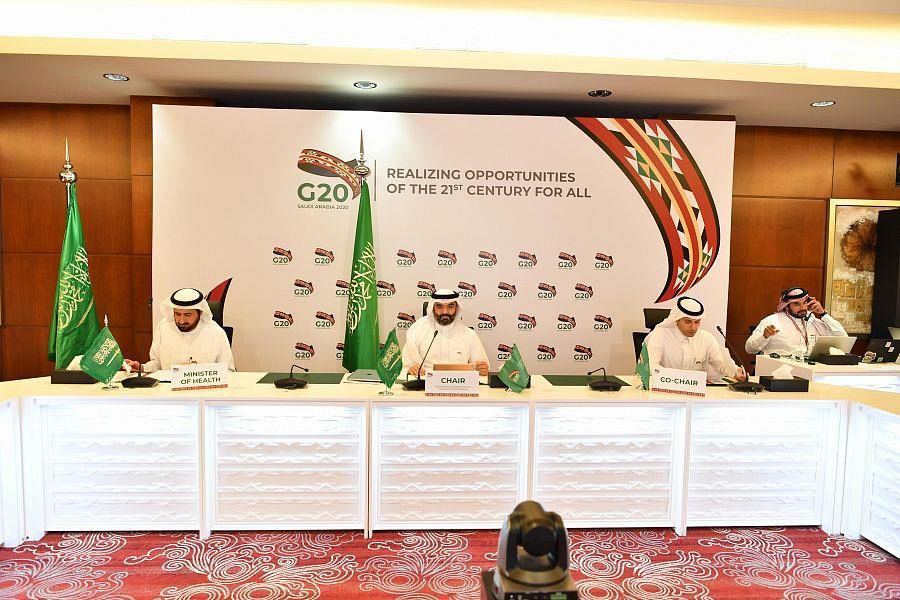
Riyadh, July 22, 2020, SPA -- The Group of Twenty (G20) Ministers responsible for the digital economy held a ministerial meeting today under the Kingdom of Saudi Arabia‘s presidency of the Group to discuss harnessing digital technologies to realize opportunities of the 21st century for all.
They issued the following Ministerial Declaration Wednesday, July 22, 2020:
1. Building on the achievements and commitments of past Presidencies, we, the G20 Ministers responsible for the digital economy, met on 22 July 2020 to discuss
harnessing digital technologies to realize opportunities of the 21st century for all. In 2020, the G20 Digital Economy Task Force (DETF) brought together all G20
members as well as guest countries. The Kingdom of Saudi Arabia also invited the Organization for Economic Co-operation and Development (OECD) and the International Telecommunication Union (ITU) as knowledge partners.
2. As our societies and the global economy digitalize, there are ever greater opportunities to advance standards of living through human-centric, data-driven,
and evidence-based policy, increased economic competitiveness, higher-quality jobs, enhanced provision of public services in cities of all sizes and communities in remote and rural areas, and more inclusive societal participation of people from all backgrounds. Digitalization also poses challenges including how to bridge digital divides, and develop effective policies and strategies, that are innovative as well as agile, flexible, and adapted to the digital era, while addressing anti-competitive practices, safeguarding privacy, advancing security, building trust, and reducing inequalities. Digitalization is also increasing the importance of boosting job opportunities, increasing market access for Micro, Small and Medium Enterprises (MSMEs).
We support fostering an open, fair, and non-discriminatory environment, protecting and empowering consumers, ensuring the safety and stability of supply
chains in relevant areas, and advancing inclusiveness and human-centricity more broadly, noting the importance of the environmental impact of digitalization and
introducing a gender lens. We continue to support international cooperation and multi-stakeholder engagement to design and implement evidence-based digital
policies to address these challenges. We recognize that various countries have already taken steps with the intention of making policy approaches more flexible,
holistic, and agile, for example through the use of regulatory sandboxes.
3. We stress the importance of the digital economy and policy discussions to sustain
progress on the implementation and achievements of the 2030 Agenda for
Sustainable Development.
4. We recognize that universal, secure, and affordable connectivity is a fundamental
enabler of the development of the digital economy and a catalyst for inclusive
growth, innovation, and sustainable development. We recognize the importance of
initiatives related to advancing digital connectivity infrastructure, digital skills and
awareness, the affordability of Internet services and devices, closing the digital
gender gap, and the relevance of digital content. We recognize the need to close
the gaps in these areas and the importance of working with stakeholders to
connect humanity by accelerating global Internet penetration, especially in remote
and rural areas.
5. We emphasize the role of connectivity, digital technologies, and policies in
accelerating our collaboration and response to the COVID-19 pandemic and
enhancing our ability to prevent and mitigate future crises as stated in our
Extraordinary Statement adopted on April 30, 2020. We note the Policy Options to
Support Digitalization of Business Models during COVID-19, developed by the Saudi
G20 Digital Economy Ministers Meeting Presidency, which shares policies and practices to strengthen business continuity
and resilience consistent with national circumstances.
--More
21:55 LOCAL TIME 18:55 GMT
0020
www.spa.gov.sa/w1375875






